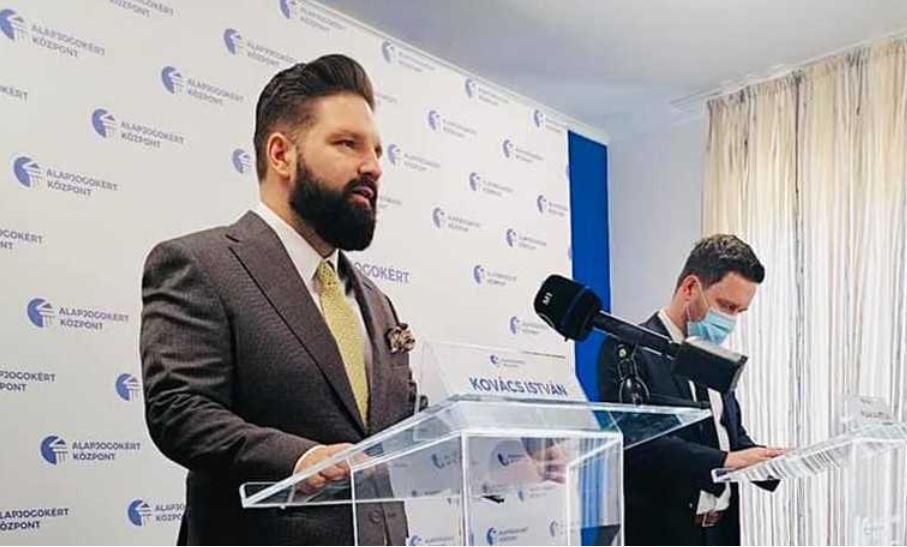By: V4 Agency
Efforts to do away with member states’ right to veto in EU foreign policy decision-making constitute yet another attack on national sovereignty, the Hungarian Center for Fundamental Rights pointed out.
Conventionally, foreign policy falls within the competence of member states, Istvan Kovacs, strategic director of the research institute dealing with legal analysis, pointed out referring to the dialogue on the EU’s future at a press conference on Wednesday. The EU can only act if all countries unanimously agree to a decision, he added.
The European Union Conference on the Future of Europe has begun. The year-long series of events was organised with the aim of assessing the current situation of the European Union and of enhancing efficiency,…
As an example, he mentioned Hungary’s decision to veto the EU’s joint statement on the Israeli-Palestinian conflict – a document “deeply flawed on a thousand counts”, as it presented Israel as the unilateral aggressor.
Following this veto, the EU leadership reiterated “the necessity to abandon a unanimous decision-making in the interest of a genuine common foreign policy”. In Kovacs’s view, this move would be extremely dangerous as it could be used to further dismantle the sovereignty of member states.
“A strong bastion of member states sovereignty would be lost, which until now has been inconceivable,” he stressed.
“The right to veto is not some devilish deal,” the strategic director argued, as it is exercised by numerous member states, adding, however, that certain vetoing countries appear to be judged by a double standard.
EU project leader Attila Kovacs pointed out that in the past seven years the decision makers in EU foreign policy have been delegated by the left wing and they have monopolised bloc’s diplomacy. He believes that instead of representing the “common everyday interests of Europe” – the interests of the European citizens, families, and companies – they adhere to an ideology-based foreign policy thematically revolving around human rights and “democracy export”.
According to Mr Kovacs, switching to a qualified majority in EU foreign policy decision-making would benefit large member states, primarily Germany and France. These countries with their population size can easily form a “blocking minority” to prevent the EU policy from veering too far from their interests, he noted.
At the same time, he predicted that as the German election in September approaches, increasing criticism can be expected targeting state leaders who stand up for their national interests.
In Mr Kovacs’s view, the European Commission led by Ursula von der Leyen has driven EU-Russia and -China ties to an all-time low by attempting to intervene in human rights and domestic policy issues which are “not in its scope of competence,” he pointed out.
Regarding the latest Palestinian – Israeli conflict the expert said that the leaders of countries taking in migrants by the millions are counting on Muslim votes and are shoring them up with anti-Israel, pro-Palestine and pro-Hamas slogans. This is unacceptable; Europe should be representing Judeo-Christian values, he emphasized.
Immigrants of Arab and Middle-Eastern descent have demonstrated for Palestine in Belgium, France and Sweden….


